[The interview was conducted in French by Marie Bohner. All links forward to French-language pages unless otherwise stated].
Suzanne Lehn defines herself as a long-time media addict. She has been a Global Voices collaborator since 2008 and is thought of as a second “mother” by Global Voices in French authors and translators (Claire Ulrich, also co-editor of Global Voices in French, is the first “mother”). Meet the 66-year-old geek who shuns narrow-minded thinking and unfailingly challenges herself to conquer new horizons from both a media and human perspective.
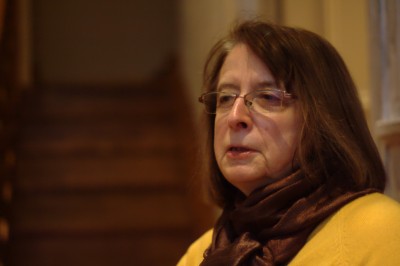
Suzanne Lehn. Photo by Stève Duchêne, used with permission.
Global Voices (GV): How do you explain your passion for media?
Suzanne Lehn (SL): Je suis passionnée de médias depuis l'enfance. J'avais une prof d'histoire au lycée qui nous faisait tenir un cahier d'actualités, pour lequel nous devions lire chaque jour un quotidien. Quand la plupart de mes camarades avaient choisi les Dernières Nouvelles d'Alsace, j'avais, gourmande déjà d'élargir mes horizons, choisi Le Monde. A la maison, c'était presque religieux : à midi, avec mes parents, on écoutait les informations à la radio. Mes parents ayant vécu les deux guerres mondiales, ils craignaient toujours l'avènement d'un troisième conflit. Lors de l’insurrection de Budapest en 1956, je me souviens de l'atmosphère de peur qui régnait autour de la table. Incroyable aussi l'affaire des alpinistes Henry et Vincendon, toujours en 1956, dont on avait suivi l'agonie sur le Mont Blanc en direct, car ils avaient une radio, mais que les secours ne pouvaient pas atteindre. J'avais 9 ans à l'époque. En 1963, on était suspendus à la radio pendant l’assassinat de Kennedy. Au-delà de l'inquiétude, il y avait chez moi une intense curiosité, une façon, en suivant l'actualité, de s'ouvrir au monde et de ne pas rester dans le petit cercle fermé de la famille.
Suzanne Lehn (SL): I have had a passion for media since my childhood. I had a history teacher in high school who made us keep a book of news stories and we had to read a newspaper every day. While most of my classmates chose the paper Dernières Nouvelles d'Alsace, I was already keen to broaden my horizons and chose Le Monde. At home it was almost religious: at noon, I would invariably listen to the news on the radio with my parents. My parents lived through both world wars, and they lived in perpetual fear of a third conflict breaking out. During the 1956 Budapest uprising, I remember the prevailing sense of fear around the table. Another incredible episode in 1956 was that of mountaineers Henry and Vincendon, who perished ascending the Mount Blanc. We followed live their agonising wait because they had a radio but the rescuers couldn't reach them in time. I was 9 years old at the time. In 1963, we were glued to the radio following Kennedy's assassination. Much more than worry, at home there was intense curiosity. In a way, by following the news, we opened ourselves up to the world rather than staying closeted within the family.
GV: How has the Internet and social media changed the media in general?
SL: Avec internet, on entre dans l'ère de l'immédiateté. C'est un élargissement : par opposition, tout ce qui est local paraît encore plus rétréci. Avec internet on peut se fabriquer son propre menu. Les journaux, la télévision nous donnent un sommaire imposé, le même pour tous. Sur la toile, on peut partir à la pêche aux informations en se fiant au hasard. Que va apporter la timeline de twitter aujourd'hui ? Qu'ont posté les amis sur facebook ? On obtient des visions plus personnelles de l'actualité, avec observations et commentaires. On y trouve aussi des sujets qui ne sont pas abordés par les médias traditionnels, car ils ne satisfont pas les annonceurs.
SL: With the Internet, we have entered the age of immediacy. The world seems to always be expanding. In contrast, everything local appears to be even more parochial nowadays. With the Internet, you can devise your own “media menu”. Newspapers and television impose on us a one-size-fits-all type of news. On the web, we can take a more serendipitous approach to reading the news. What's going to appear on my Twitter feed today? What have my friends posted on Facebook? We get a more personal view of the news, including observations and commentaries. You will also find topics which the mainstream media don't deal with because they don't interest the advertisers.
GV: Secularism, immigration, national identity, French political viewpoints, Roma: the majority of the subjects you write about and translate for GV have strong links to identity. What message do you hope to send?
SL:Mon but est de prendre le contrepied de l'usage qui est fait de l'identité dans la politique, notamment dans la politique française d'une certaine époque. J'ai voulu mettre en lumière les coulisses très nocives du Ministère de l'Identité Nationale qui avait été créé en France.
SL: My aim is to take a stand against how identity is used in politics, especially in French politics, which recalls a not so glorious era of our history. I wanted to shed light on the harmful impact that the Ministry of National Identity had when it was created in France.
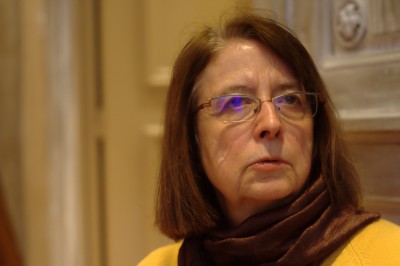
Suzanne Lehn. Photo by Stève Duchêne
GV: Multilingualism is also at the heart of your concerns. Why is multilingualism important?
SL: Avec des langues différentes, on peut élargir son cercle, aller au-delà de sa propre langue, on peut dialoguer, en direct ou via les médias sociaux. C'est aussi une question de curiosité, de plaisir intellectuel! Je dois beaucoup à mon oncle Georges Schmidt, qui était au nombre des polyglottes extraordinaires. Il a grandi dans une famille alsacienne typique, pas particulièrement éduquée, bilingue comme on peut l'être en Alsace, et a développé son talent sans qu'on comprenne vraiment d'où ça venait. Il a assisté aux début des Nations Unies, où il a été d'abord traducteur, puis réviseur, puis il a fini sa carrière à la terminologie. Il a appris plus de 60 langues, et en parlait une douzaine couramment. La passion de sa vie, c'était de collectionner des dictionnaires et des livres de grammaire, un livre pour chaque langue existante. Il avait établi sa propre classification. A son décès, je me suis occupée de ses livres et je les ai donnés au Collège de France notamment. Mon oncle aurait souhaité que je soie traductrice aux Nations Unies, et je regrette vraiment qu'il ne puisse pas voir mon travail à GV aujourd'hui. Il aurait sans aucun doute été fasciné par un outil comme GV.
SL: Through different languages we can open up the circle that was limited to our own language. We can maintain a dialogue, either face to face or via social media. It is also a matter of curiosity, and intellectual pleasure. I owe a lot to my uncle Georges Schmidt who was one of the great polyglots of his time. He grew up in a typical Alsacian family, not having access to top schools, but being bilingual is the norm in Alsace, and he developed his talent without anyone really understanding where it came from. He contributed to the beginnings of the United Nations, first as a translator, then as an editor and then towards the end of his career he became a terminologist. He learned over 60 languages and spoke a dozen fluently. His lifelong passion was collecting dictionaries and grammar books, one book for each language. He created his own classification system. When he died, I took responsibility for his books and gave most of them to the College de France. My uncle would have wanted me to be a United Nations translator, and I truly regret that he can't see my work today with GV. He would, without a doubt, have been fascinated by a platform like GV.
GV: What languages do you speak?
SL: Français, évidemment, c'est ma lange maternelle. Je parle aussi anglais et allemand, et puis à un niveau moindre, mais ex æquo, russe et espagnol. Je continue à étudier le russe en ce moment. J'avais aussi commencé à apprendre l'arabe il y a un moment, et j'aimerai y revenir.
SL: French, of course, as it is my mother tongue. I also speak English, German, and then Russian and Spanish to a lesser degree. I am studying Russian at the moment. I also started learning Arabic a while ago, and I'd like to take that up again.
GV: What is the GV spirit?
SL: GV, c'est d'abord l'ouverture et la communauté, un groupe de personnes avec des objectifs concordants et qui travaillent ensemble dans un esprit très amical. J'ai rejoint GV en 2008, alors que le noyau dur et expérimental était déjà en action depuis 2004/2005. A mon arrivée, le projet Lingua venait de démarrer et l'anglais était la langue véhiculaire. L'équipe de traduction française était petite, une petite dizaine de personnes. Aujourd'hui il y en a plus de 100. En 2010, les articles ont commencé à être écrit en langues locales, ce qui a démultiplié GV. La structure de GV s'est à la fois étoffée, alourdie et professionnalisée. La possibilité d'écrire dans sa propre langue a permis aux groupes linguistiques, notamment les lusophones, d'explorer considérablement leur créativité. Alors oui, les choses changent beaucoup et vite, mais il ne faut pas s'accrocher à l'organisation telle qu'elle était à ses débuts. C'est fascinant de regarder dans quel sens les choses vont. Parfois, le multiculturalisme joue des tours : la culture de l'information à l'anglo-saxonne et celle à la française sont très différentes… Il y a un équilibre à trouver entre la cohérence d'ensemble de GV et la liberté de chaque groupe culturel.
SL: GV is firstly about openness and community, a group of people with comparable objectives who work together in the spirit of friendship. I joined GV in 2008, though the experiment at the core of the project had been underway since 2004/5. When I arrived, the Lingua project had just launched and English was the working language. The French translation team was small, just a dozen people. Today there are over 100. In 2010, articles began being written in local languages, which augmented the size of GV. The GV structure all at once grew and became more structured and professional. The possibility of writing in their mother tongue allowed language groups, especially Portuguese speakers, to explore their creativity more widely. So things can change quickly and one should not hang on to the nostalgia of how the organisation was when it just started out. It is fascinating to see the direction in which things have moved. Sometimes, multiculturalism is tricky: the Anglo-Saxon information culture is very different from that of the French. A balance needs to be found between the overall cohesion of GV and the freedom of each cultural group.
GV: Given that you spend three to four hours a day on social media and follow at least ten blogs per week, which blogs would you want to recommend right now?
SL: Je papillonne beaucoup sur internet, et c'est un exercice difficile de faire des choix! En français, j'aurais envie de parler d'un blog très original, neuf et frais, humoristique et caustique, c'est une femme qui tricote l'actualité, et ça s'appelle Délit Maille. Je recommande aussi le blog en français et bambara de Boukary Konate, pour découvrir la sagesse des villages et des proverbes du Mali. Et enfin, bien sûr, je n'oublie pas l'Alsace avec le blog de Lovely Elsa. Pour les blogs en anglais, je suis avec attention celui d'une égyptienne, Suzeinthecity [en], qui publie des photos de graffitis : les photos sont superbes et l’Égypte au cœur de l'actualité. Et enfin, pour les photos aussi, il y a le blog Before They.
SL: I browse around a lot on the Internet, and it's quite a task to choose what to read. In French, I'd like to give a shout out to a really new, fresh blog which is humorous with a bite: it's a woman who knits the news and it's called Délit Maille. I would also recommend the French- and Bambara-language blog by Boukary Konate as an introduction to Malian village wisdom and proverbs. And finally, not forgetting Alsace of course, the blog written by Lovely Elsa. For blogs in English, I closely follow one written by an Egyptian woman, Suzeinthecity [en], which posts photos of graffiti. The photos are superb and Egypt is at the heart of current affairs. Lastly, also for the photos, I recommend the Before They blog [en].
GV: Do you have any advice or tips to share with bloggers?
SL: En tant que lectrice, je suis très sensible à la forme, au soin apporté à écrire. Cela conditionne la possibilité de rentrer dans l'écrit de quelqu'un. Par ailleurs je recherche aussi des textes et des visions personnelles, originales, car internet est plein de gens qui ne font que reprendre des choses déjà dites.
SL: As a reader, I am very sensitive to the attention paid to the written form. This makes it possible to relate to someone's writing and be absorbed into it. I also look for texts and viewpoints that are personal and original because the Internet is full of people who are simply rehashing what's already been said.
GV: What do you think is on the horizon in terms of new technology?
SL: J'ai assisté à re:publica à Berlin en 2012, j'en ai profité pour rencontrer des nouveaux blogueurs du monde entier. C'est un événement à vivre, au moins une fois, si ce n'est tous les ans, au mois de mai à Berlin. Il y a des sujets pointus, techniques et technologiques, et mais on y parle aussi d'art, d'actualités, de politique.
SL: I took part in re:publica in Berlin in 2012, which gave me the opportunity to meet bloggers from all over the world. It is an event to be experienced at least once, if not every year, during the month of May in Berlin. It covers specialized content related to technology, but it also covers arts, current affairs and politics.
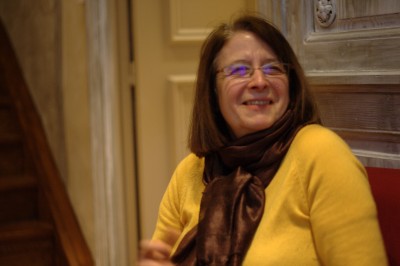
Suzanne Lehn. Photo by Stève Duchêne
GV: Would you like to add anything else?
SL: Je voudrais remercier Claire Ulrich, à qui je dois tout, puisqu'elle m'a initiée non seulement à GV, mais aussi à internet, en général et en particulier ! Bien sûr je pense aussi à tous les amis très chers que j'ai rencontré grâce à GV: Abdoulaye Bah, Boukary Konaté et tant d'autres.
SL: I'd like to thank Claire Ulrich, I owe her everything because she introduced me not only to GV, but also to the Internet in general. Of course, I'm also thinking about all of the dear friends I've made thanks to GV: Abdoulaye Bah, Boukary Konaté and so many others.


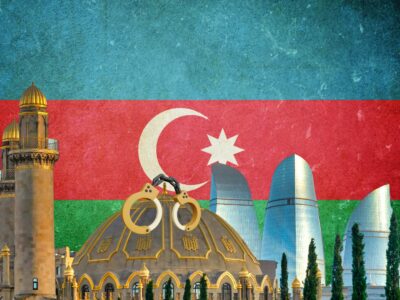
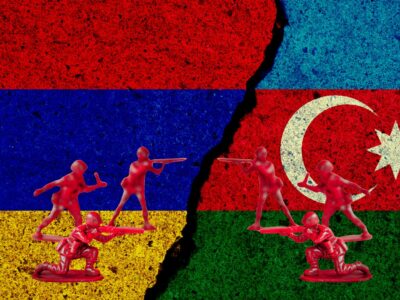



3 comments
Awesome Suzanne!